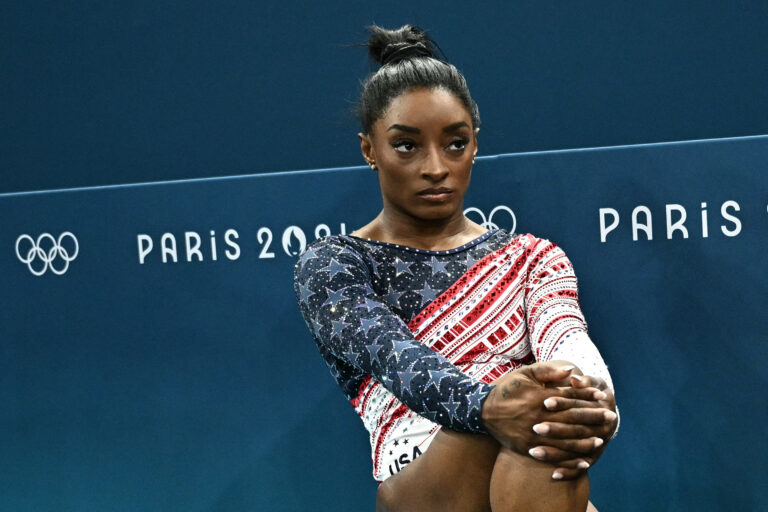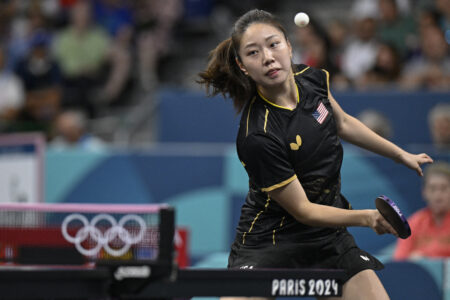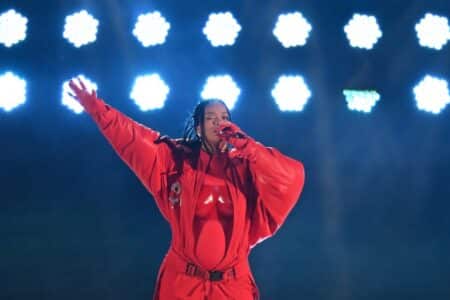
Anyone who watched “Inside Out” or its sequel “Inside Out 2” can tell you that humans are driven by emotions.
However, if you don’t believe what a kid’s animated show (that has overtaken “Furious 7” and “The Avengers” on Global Box Office’s top 10 highest-grossing movies ever worldwide) can tell you about emotions, we’ll let data convince you.
In 2003, Harvard Business School professor Gerald Zaltman said that emotions drive 95% of a consumer’s purchasing behaviours and decision-making in general.
In fact, the most common emotional decision is reactive (subconscious) decision-making, though it takes at least 0.1 seconds for the rational cortex to start responding.
Neuroscientist Antonio Damasio’s study proved that point further. Damasio found that for those with brain injuries that damaged the part of their brains where emotions are generated, these injuries affected not only their ability to feel but also their ability to make decisions, which was seriously impaired.
That’s not to say that logic and rationalisation don’t play a part – they follow closely behind emotion. Still, as humans, we are first and foremost prompted by our emotions throughout our lives.

Putting your game face on means showing that you are determined to succeed at something – and sometimes, people might look a little angry. Source: AFP
The Olympics: The perfect stage for the best emotions to come through
In an international competition like the Paris 2024 Olympics, where athletes train at some of the best sports colleges in the world and duke it out in front of millions of people, emotions run high and can determine their success or failure.
Here, the best emotions aren’t the euphoria upon triumph or the disappointment upon defeat, though they make some of the best photos for the media.
There’s anger, which could be directed at oneself, the opponent, or the judges; it might even be directed at a larger social or personal issue that the athlete is going through, getting their blood going and giving it their all in their games.
There’s pride in being at the event, representing not just your nation but showcasing your capabilities to the world, battling for the title of the world’s best alongside lifelong rivals or new friends.
And then there’s anxiety, the emotion that is tip-toed around. It’s often seen as a negative thing to have, but athletes have proven time and time again that even anxiety can be the greatest motivator of all time if you know how to handle it.
Anger
Remember that time you felt antagonism toward someone or that you’ve been done? That’s anger, according to the Encyclopedia of Psychology.
“My anger has been the fuel that has helped me realise my dream,” said Se-young An, the South Korean gold medalist in the women’s singles badminton event, in an interview with Yonhap News Agency.
An’s anger was, and still is, directed at – surprisingly – her own team. In previous media interviews, An shared of the South Korean national team’s poor management of her knee injury, leading her to a longer recovery period than necessary. She even said that she found it “difficult” to go on with the national team.
But armed with anger at the injustice and hope to amplify the issue with an Olympic medal, An gave it her all and prevailed.
“I wanted to have my voice heard,” said An. “In a way, that has been my dream.”

South Korea’s Se-young An reacts after winning the women’s singles badminton final match during the Paris 2024 Olympics. Source: AFP
In the men’s singles badminton event, Malaysian Lee Zii Jia bagged bronze, though not after facing his own share of challenges and criticisms.
“Every morning when I wake up, I see so much news about myself. I kept wondering what I did wrong,” says Lee in a post-match interview. “Whatever the media wrote about me, I kept my silence because I knew I would prove it to them.”
Lee, currently ranked #7 in the world by the Badminton World Federation (BWF), resigned from Malaysia’s national team, the Badminton Association of Malaysia (BAM), in 2022.
Since then, Lee has been banned from participating in any international tournaments that require BAM’s approval and any BWF-sanctioned tournaments for two years.
After that, an appeal was submitted, and the ban was lifted, though Lee still faces media criticism to this day.

Tom Daley (L) came out of retirement and returned to the Olympics because his son (right) wanted to see him dive at the Olympics. Source: AFP
Pride
Pride is the feeling of pleasure and satisfaction that you get because you or people connected with you have done or got something good, according to the Cambridge Dictionary.
For nationally and internationally beloved British diver Tom Daley, pride meant coming out of retirement when his six-year-old son said he wanted to see Daley dive at the Olympics.
“That’s the big thing that I wanted to do, set an example, even to my kids that if you have a dream and you want to set your mind to it, you can get there,” said Daley, who won Team Great Britain silver alongside Noah Williams in the men’s synchronised 10-meter platform.

Gold medallists Team China (Zhanle Pan, Jiajun Sun, Haiyang Qin, and Jiayu Xu) pose after the men’s 4x100m medley relay final swimming event during the Paris 2024 Olympics. Source: AFP
Meanwhile, Chinese swimmer Zhanle Pan was carrying the weight of a nation and its pride on his back when he set the world record in the 100m freestyle and, together with his teammates, ended the US’s previously indomitable reign in the men’s 4×100 meters medley.
This historic win, however, has come under scrutiny.
Since the revelations of the Chinese team’s doping controversy in the Tokyo 2020 Olympics, the current team has been faced with unyielding probes and dissections over the legitimacy of their wins.
Australian swim coach and commentator Brett Hawke posted on his Instagram that Pan’s performance was “not humanly possible to beat that field” and that the swim was “not real life. Not in that pool, against that field.”
Pan himself told the newspaper China Daily that he voluntarily underwent 21 doping tests from May to July before the Paris 2024 Olympics. “I cooperated with all the testing procedures and stayed confident that I am competing fair and clean,” said Pan.
“The Chinese swimming team underwent more tests in two weeks than foreign athletes did in an entire year,” wrote China’s Global Times newspaper.
In another article, Global Times writes: “According to the logic of some in the West, when European and American athletes break records, it is seen as a breakthrough for ‘human potential,’ but when Chinese athletes set records, it is labelled as ‘humanly impossible.’ Isn’t this absurd double standard a blatant form of racism?”
An X post, which shares a clip of Pan conducting a post-final interview, has been translated to saying that he broke the record because he had “a lot of anger [towards the biases and treatment of the Chinese team].”
The clip – with over 11,000 likes – has been mistranslated, as Pan answers the first half with the English equivalent of “I just held my breath,” which, taken out of context, can mean “I just gritted my teeth [at the accusations].”
The true translation of his answer to the question of how he broke the record is: “I just held my breath [to my best abilities when swimming], and I had our country’s hopes riding on my shoulders [for me to perform well].”

Not everyone – even professional athletes who have competed in front of thousands – can avoid the creeping feeling of anxiety. Source: AFP
Anxiety
Anxiety is an emotion which is characterised by an unpleasant state of inner turmoil and includes feelings of dread over anticipated events.
Anxiety is not the same as fear, according to the Encyclopedia of Psychology and the American Psychology Association’s Dictionary of Psychology, but they are often used interchangeably.
Anxiety is considered a future-oriented, long-acting response broadly focused on diffusing threats or solving a larger problem. In contrast, fear is a present-oriented, short-lived response to an identifiable and specific threat.
While every athlete will have their share of anxiety when participating in their sports (or even just being around a crowd, like it was for Simone Biles), some face different stakes, like South Korean table tennis player Jong-hoon Kim.
Kim, 27, was meant to begin his mandatory military service in September 2026. This is something all able-bodied men aged 18 to 35 are mandated to serve between 18 and 21 months.
However, athletes who reach the podium at the Olympics are exempt from this, and Kim narrowly won out by securing a third-place finish in the mixed doubles table tennis with teammate Yu-bin Shin.
“I tried to think of [the bronze medal match] as just one game, but I did feel the weight of it,” said Kim. “I’d be lying if I said I wasn’t thinking of (the military service). [Fellow South Korean table tennis player] Jang Woo-jin even told me I wouldn’t be human if I didn’t think about the military.”

Jong-hoon Kim of South Korea initiated a selfie with his fellow podium winners from North Korea and China, and the internet is loving it. Source: AFP
The same luck can’t quite be said for South Korean golfer Tom Kim, who was just four shots away from the bronze medal in the men’s golf competition.
While he did have a tearful moment in the scoring area, it wasn’t for the narrow miss he had to avoid the military service.
“We are here to represent our country and I want — to be honest, I want me and Ben to be standing in that stadium not for exemption but for our country. That’s the most important part,” said Kim to Golf.com.











